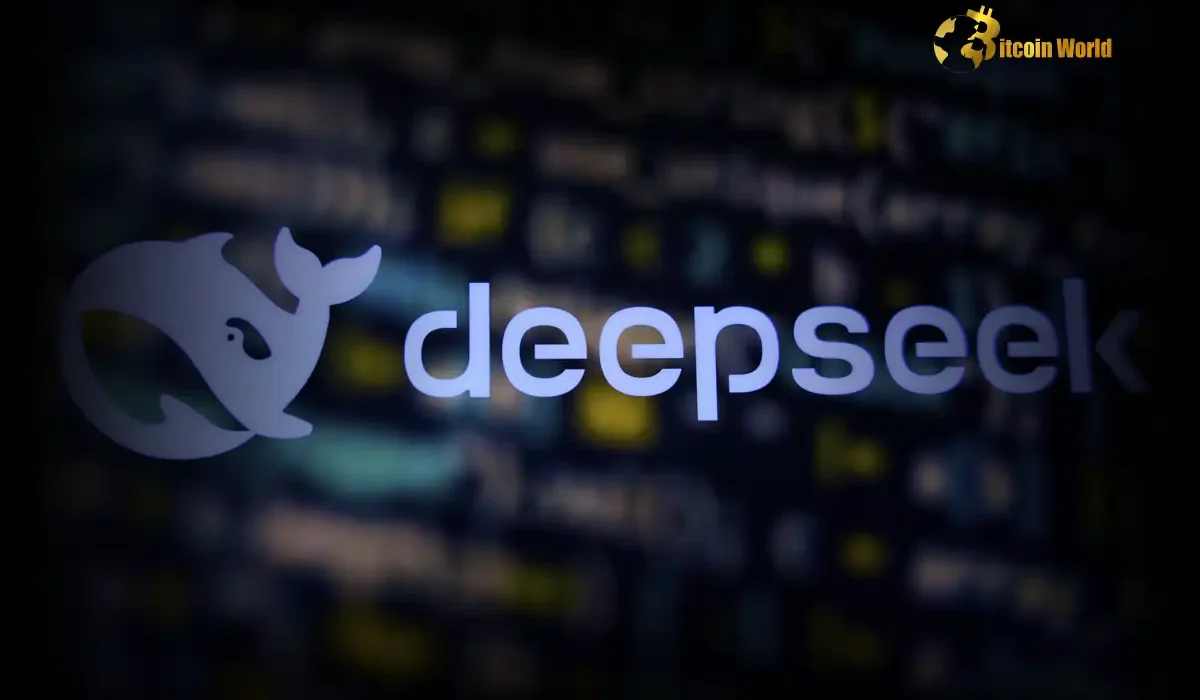Is China tightening its grip on the burgeoning AI industry? Reports are surfacing that Beijing is casting a very close eye on DeepSeek, a homegrown AI startup that burst onto the scene with its impressive R1 reasoning model. For crypto enthusiasts and tech followers alike, this development raises crucial questions about the future of innovation and regulatory landscapes in the digital world. Let’s dive into what this increased scrutiny means for DeepSeek, the broader tech ecosystem, and potentially, the cryptocurrency space itself.
Why is China Focusing on DeepSeek AI Startup?
DeepSeek’s rapid ascent in the AI startup world hasn’t gone unnoticed. After launching its open-source “reasoning” model, R1, in January, the company quickly garnered attention for its potential to rival global AI giants. This sudden prominence seems to have triggered a closer look from the Chinese government. Think of it like this: when a new cryptocurrency project suddenly gains massive traction, regulators often step in to understand its implications and ensure compliance. Similarly, DeepSeek’s groundbreaking AI technology is now under the microscope.
According to reports from The Information, this increased attention translates into tangible restrictions. These include:
- Travel Restrictions: Some DeepSeek employees are facing limitations on international travel. In some instances, their passports are reportedly held by High-Flyer, DeepSeek’s parent company, allegedly to enforce these restrictions.
- Investor Screening: The Chinese government is now purportedly involved in vetting potential investors looking to inject capital into DeepSeek. This suggests a desire to control the flow of resources and partnerships associated with the AI startup.
These measures echo broader concerns about intellectual property and technological leadership. Recent reports suggest that Chinese authorities are advising AI researchers and entrepreneurs to avoid travel to the United States, fearing the potential loss of trade secrets. This context paints a picture of heightened vigilance within China’s tech sector, especially concerning cutting-edge technologies like AI.
Decoding China AI Regulation: What’s Driving This Move?
Understanding the motivations behind China AI regulation is crucial. Several factors could be at play:
- National Security Concerns: AI is seen as a strategic technology with significant implications for national security. Governments worldwide are grappling with how to regulate AI to prevent misuse and ensure it aligns with national interests. China is no exception and likely views close monitoring as essential.
- Technological Sovereignty: China has a stated goal of achieving technological self-reliance. By closely monitoring and guiding domestic AI startup companies like DeepSeek, the government may be aiming to foster homegrown innovation while mitigating risks and ensuring alignment with national technological strategies.
- Data Control: AI models are data-hungry. Control over data flows and usage is a significant aspect of government control AI efforts globally. China has implemented stringent data regulations, and its oversight of DeepSeek could be linked to ensuring data security and compliance.
- Industry Guidance and Direction: China AI regulation might also be about steering the direction of AI development within the country. By influencing investment and operations, the government can encourage AI applications that align with its broader economic and societal goals.
Impact of Government Control AI on Innovation and the Tech Landscape
The implications of this increased scrutiny on DeepSeek, and potentially other Chinese AI startups, are multifaceted:
- Potential Slowdown in Innovation? While some level of regulation is necessary, excessive government control AI could stifle innovation. Startups thrive on agility and freedom to experiment. Restrictions on travel and investor access might hinder DeepSeek’s growth and its ability to compete on a global stage.
- Focus on Domestic Market: Increased China technology restrictions could push companies like DeepSeek to focus primarily on the domestic Chinese market, potentially limiting their global reach and impact.
- Geopolitical Tech Divide: This situation underscores the growing geopolitical divide in technology. As nations increasingly prioritize national security and technological sovereignty, we may see more distinct tech ecosystems emerge, with different regulatory approaches and innovation priorities.
- Investment Climate Shifts: For investors, the evolving China AI regulation landscape adds complexity. While the Chinese AI market remains enormous, potential investors will need to navigate government oversight and potential restrictions, which could influence investment decisions.
DeepSeek and the Future of AI: Navigating the China Technology Restrictions
DeepSeek’s journey is now intertwined with the evolving landscape of China technology restrictions and government control AI. How the company navigates these challenges will be a crucial case study for the AI industry and for international tech relations. Will DeepSeek be able to maintain its innovative edge under closer scrutiny? Will this model of government oversight become more prevalent in other nations as they grapple with AI regulation?
For the cryptocurrency world, these developments are a reminder of the broader context in which digital innovation unfolds. Just as crypto faces regulatory headwinds and government interest, so too does AI. The DeepSeek situation highlights the delicate balance between fostering technological advancement and addressing national interests and concerns. The coming months will be critical in observing how this situation evolves and what precedents it sets for the future of AI and technology regulation globally.
Bitcoin World has reached out to DeepSeek for comment and will continue to provide updates on this developing story.
To learn more about the latest AI market trends, explore our article on key developments shaping AI features.
Disclaimer: The information provided is not trading advice, Bitcoinworld.co.in holds no liability for any investments made based on the information provided on this page. We strongly recommend independent research and/or consultation with a qualified professional before making any investment decisions.


